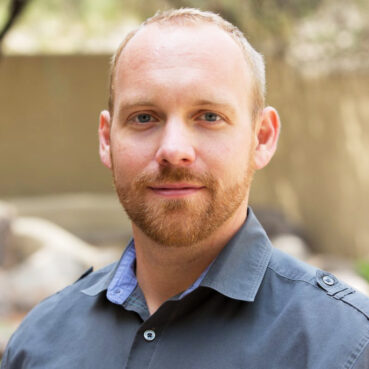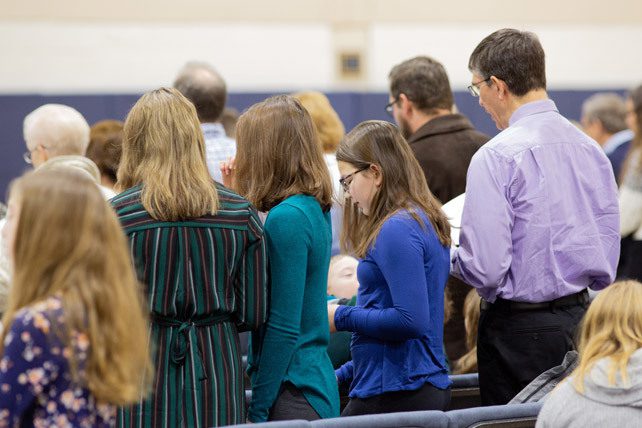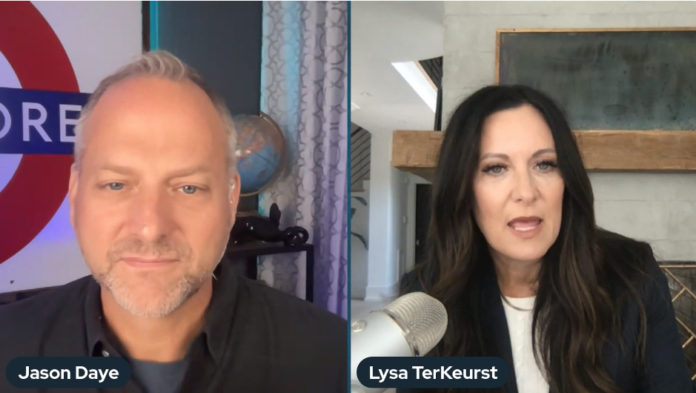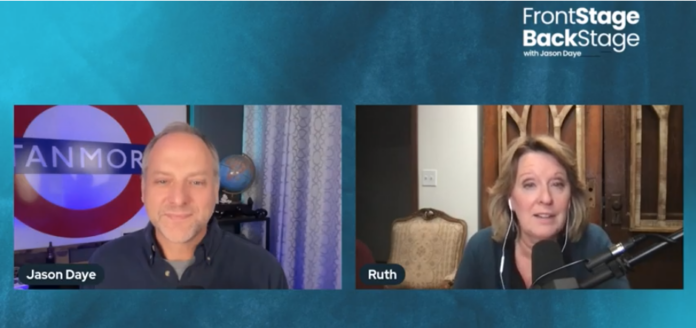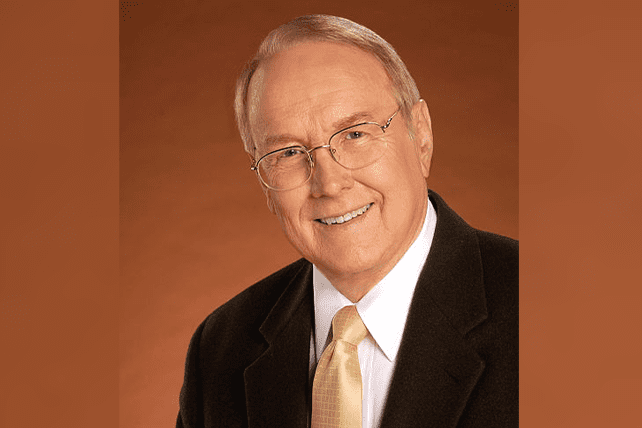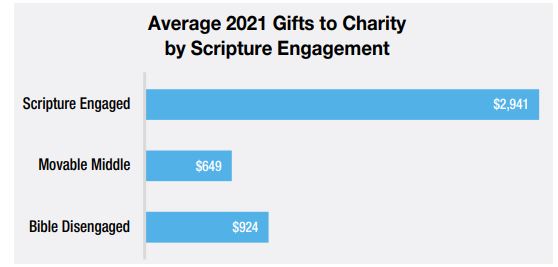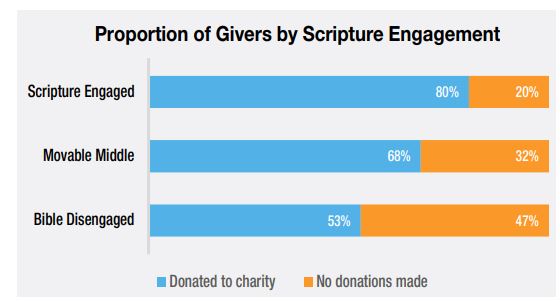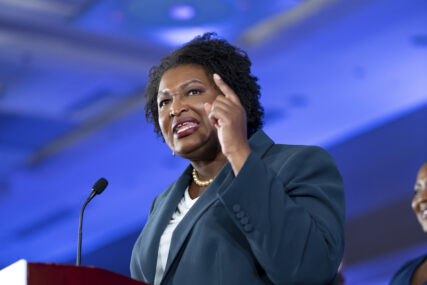God is seeking people that will worship—truly worship—and he has promises that if you are faithful to worship on His terms that there are endless rewards and blessings. I challenge you to engage in true worship. There are three ingredients for true worship in which we all can grow.
Recently I observed a church on TV. I switch to this station right in the middle of one of their songs. They were singing “Holy Spirit, Thou Art Welcome”. During the song every person that the camera showed just stood their and read the words off the wall. When the song was over, the congregation sat down and the rest of the service went off like clockwork.
As I watched this I began to think about how we have lost sight of what worship really means. Jesus said in John chapter 4 that there is only one true way to worship. Jesus set up the system of worship, so when we decide to enter into worship, we are no longer in control of ourselves, but we are entering His turf and submitting ourselves to the will of God. This is where humility kicks in.
Humility is the first key to any successful time of worship. Throughout the entire bible the primary Hebrew and Greek words for worship mean humility. Without humility you cannot truly worship. Humility means to lower yourself and submit yourself to the will of another. So when you worship, you are coming under submission of the Holy Spirit, and allowing Him to act, walk, and speak in and through you. Romans 12 says it best by saying that you should present, or submit, your body to God as a living sacrifice.
Many of our churches today will not come under submission of the Holy Spirit. They have a schedule to keep, this song has to be sung, these announcements have to be made, the pastor has to get done by 12:00. All the while the Holy Spirit is trying to point out people that are hurting, a marriage that is falling apart, or someone that might be contemplating suicide.
As long as we stay in control, we will go on and have church as usual so that we can get to the buffet line by 12:15. But when we let the Holy Spirit takes control we will stop having church and start being the church. When the Holy Spirit is actually involved in our services sickness will be healed, marriages will be restored, joy will reign in our midst once again, and the lost will come to Jesus.
Will the services go past twelve o’ clock? Probably. But who cares? When I choose to worship, I expect the Holy Spirit to take control. I don’t want Him hanging around in the back corner somewhere. I want Him center stage. I want the lost to see Him and come running. I want the broken to see Him and start shouting because they have been healed. I want the proud and stubborn to see Him and start weeping in humility.
That is true worship! Worship in truth is great and wonderful—singing the songs, raising your hands, clapping, and all the other tangible stuff. But we must go beyond that and learn how to worship in the Spirit and let the Holy Spirit have his way.
#2: True Worship Has Faith
Hebrews 11:6 (NIV) 6And without faith it is impossible to please God, because anyone who comes to him must believe that he exists and that he rewards those who earnestly seek him.
In a previous study we saw that the first ingredient required for worship was humility. We cannot come to God with a proud or haughty spirit. Pride can do nothing but die in the presence of God. God will not allow it into His presence.
The second ingredient required for a successful life of worship is faith. In the above passage, the term “earnestly seek him” can also be translated as worship. So we can flip this passage around and say, “Those who worship Him must believe (have faith) that He exists and He will reward them.” Then the first part of that passage says that when we believe those two things that we will be pleasing to God, and we know from Romans 12:1 that true worship pleases God.
Let’s look at Abraham. If you continue to read through Hebrews chapter 11, you will find the many ways that Abraham exercised His faith, but let’s look at how He showed his faith in the midst of worship. This first instance of the word ‘worship’ in our English bible comes in the account of Abraham being asked to sacrifice his only son, Isaac.
Gen. 22:5 (NKJV) 5And Abraham said to his young men, “Stay here with the donkey; the lad and I will go yonder and worship, and we will come back to you.”
This passage reveals our first two ingredients of worship. The first ingredient, humility, is seen in the fact that Abraham equated his sacrifice of Isaac to worship. In Abraham’s view of things he was simply going to worship. The second ingredient, faith, is seen in the last thing that Abraham tells his servants, “…..we will come back to you.”
How could Abraham make such a statement? Because He had a deep faith in God. He believed with all his heart that God would either spare Isaac’s life, or He would raise Him from the dead. Why? Because God had given him a promise about his seed many years prior to this turning point event. Abraham knew that God existed. There was no doubt in his mind. He had experienced the hand of God many times in his life. He also knew that God was going to reward him for His act of worship. Remember what Paul said in Romans 4, “Abraham believed (had faith), and it was accounted to him for righteousness.” In other words—heaven took note of him because of his faith.
While the act and attitude of worship is 100% selfless, God has promised that He will reward us for our diligence. When we worship it is just fine to expect a blessing, because God promised that He would bless us. God may ask us to do things in worship that stretch our comfort level. He may even ask us to do something that challenges our theology. That’s where faith kicks in. When God asks those things of us and we trust Him to work everything out for good, we will be led to the third ingredient of true worship—obedience.
The key here is that we must believe that God is a keeper of His promises. When we hear the voice of God leading and prompting, we cannot disregard what He is saying. We must turn our ear to listen.
#3: True Worship Has Obedience
So far in this study we have looked at two ingredients that are vital to the life of a worshiper—humility and faith. If either of these are missing from worship, then I believe we have not entered into true worship the way God has designed it. The final ingredient we are going to look at is obedience.
Obedience, if you will, is the icing on the cake. Obedience is the key that finalizes our worship. We cannot come to God unless we have first humbled ourselves. Then as we enter His presence He will begin to speak to us, and we must make the decision to believe Him or not. But all of that is in vain, if we do not put it into action through obedience.
Now as you have been reading these articles, I suspect that some of you may have become a little frustrated. You’ve probably felt that I am trying to make the act of worship more difficult than it should be. I am not trying to make it difficult, I just want you to understand that when we make the choice to worship, there are some things that God requires of us. Remember that in the days of the Tabernacle only one person, the high priest, was allowed into the Holy of Holies. Why? Because he was the one that was totally clean, and he was the one that was bringing the pure sacrifice before the mercy seat.
Obedience is simply our faith in action. James put it best in James chapter 2 by saying that faith without works is 100% dead. And lo and behold he begins to talk about Abraham.
James 2:21 through James 2:22 (NKJV)
Was not Abraham our father justified by works when he offered Isaac his son on the altar? Do you see that faith was working together with his works, and by works faith was made perfect?
Abraham’s worship (the sacrifice of Isaac) was not made complete until he actually attempted to carry out the call of God. So what does that mean for you and your life of worship? If you truly want to worship the way that God has ordained, you must be prepared to move. Be ready to heed the voice of the Lord. Remember that Jesus said in John chapter 4 that true worshipers must worship in Spirit and in Truth. Now watch this. We worship in Spirit through our humility and faith and we worship in Truth through our obedience—faith in action.
If Abraham had not gone through with the sacrifice of Isaac, he would have nullified his faith. He would have also shown that his plan was more important than God’s plan, and that is pride which nullifies humility.
I challenge you to humble yourself before God, allow Him to speak to you and give you instruction, and be ready to move when He speaks. Then I believe God will look down and say “Behold, this is my child in whom I am well pleased.”
Find more humility quotes here.




